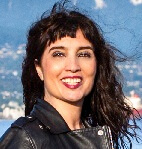As I walked along a Vancouver beach near my home this morning, I reflected on the extraordinary sea change in the Canadian election campaign.
From the shores of the eastern Mediterranean to the blue Pacific waters of Vancouver, the tragedy of the migrant crisis has linked Canada to Syria in a visceral way.
Who would have thought a terrible, exploited image of a single Syrian child, washed up on a Turkish shore, would have so influenced the course of Canadian politics? That it would potentially de-throne an incumbent Prime Minister and have rival political parties and mayors of major cities suddenly competing over the numbers of refugees they promised to bring in once elected.
Certainly not my great-great grandmother Sara, who came to these shores over a century ago, from her troubled Syrian homeland, with her son Solomon and my great-grandparents Najib and Massadi Mussallem. They were Christians fleeing Ottoman era persecution in what was then called Greater Syria, part of an empire that was carved up after WW1. They were from a village in the Bekka Valley, not far from what is now the occupied Golan Heights, in an area that became part of Lebanon in the 1920’s.
As empires shift and nations emerge, one thing remains a constant: “Greater Syria” is still reeling from the legacy of 1918, when the Sykes Picot agreement carved up the Ottoman Empire. And now, in a weird gestalt, it may change the political course of a far-flung corner of the former British Empire.
As empires shift and nations emerge, one thing remains a constant: “Greater Syria” is still reeling from the legacy of 1918
Make-or-break issue
I wonder what my great-great grandmother Sara, who refused to learn English on the grounds that it was “not the language of the future” and that its empire would soon pass, would have said about the refugee crisis from her country so affecting her adopted homeland?
What strange confluence of serendipity, luck, timing, happenstance – or was it fate?- conspired to make Syrian refugees an election breaking/making issue in Canada?
Everyone knows that election campaigns, like Mediterranean crossings in less than seaworthy vessels, are volatile journeys. Sara would have known this. She and her daughter waited at night on a freighter in Egypt’s Port Said, as their menfolk rowed out to meet them.
As they climbed up the ship’s ladder, a Turkish gunboat went by and only the top two men made it on board. Later they got stuck in Marseilles for three months due to a shipping strike, finally making it through Ellis Island, then a terrible winter in Montreal and Winnipeg, before arriving on Canada’s West Coast.
Epic journey
I think of their epic journey as I watch images of other refugee families dodge Hungarian police with exhausted, hungry children. Thousands of other Canadians must have also thought of their ancestors as they watched the nightly news. Who would have guessed that Harper’s campaign would have been capsized by a giant wave of compassion and concern on the part of Canadian voters?
Harper’s stubborn insistence on blocking the floodgates in the name of “security” concerns about people from “terrorist war zones”reminds me of the interviews I did with elders in the community a few decades ago. One man, Syrian-Canadian Habib Saloum, told me a story about his first day at school in Canada. He returned crying to his mother that “the kids beat me up and called me a dirty black Syrian.”
His mother told him to have courage and to tell the other children that he was proud of his heritage and that “Jesus was a dirty black Syrian too.” (Many Christian communities in the region still speak Aramaic and can trace their ancestry back a millennium) Habib returned the next day and told his classmates about Jesus. He still got beat up, he told me, but he felt comforted by his mother’s story.
And now, refugees fleeing ISIS and Syrian government barrel bombs are conflated with the very terrorism they are fleeing.
Canadian compassion
But the outpouring of Canadian compassion and concern for the refugees has crossed party lines, with even former Conservative cabinet ministers like Barbara McDougall calling for more open refugee policies.
This is the first time that refugee policy has become an election issue, and although one wonders why, say the shiploads of Tamil refugees fleeing the horrors of civil war in Sri Lanka in 2009 and 2010 did not spark a similar debate, it’s a good thing that Harper’s broken refugee policy has finally been condemned. One can only hope that the rights of refugees will stay on our national post-election agenda.
This is the first time that refugee policy has become an election issue
As for my ancestress Sara, who arrived here with her family (whose travel documents were stamped by officials with the term Asiatic) just before pan North American anti-Asian exclusion policies would have made it almost impossible, I think she would be pleased with the prevailing election currents. She lived out her life in a culturally isolated suburb of Vancouver devoid of Middle Easterners- but now, with thousands of Syrians on their way, she would have friends to share ahwheh (strong Syrian coffee) and make svihah (Syrian meatpies) with.
Hadani Ditmars is the author of Dancing in the No Fly Zone and is working on a new book about ancient sites in Iraq. She has been reporting from the Middle East for two decades and is also a singer and musician.





